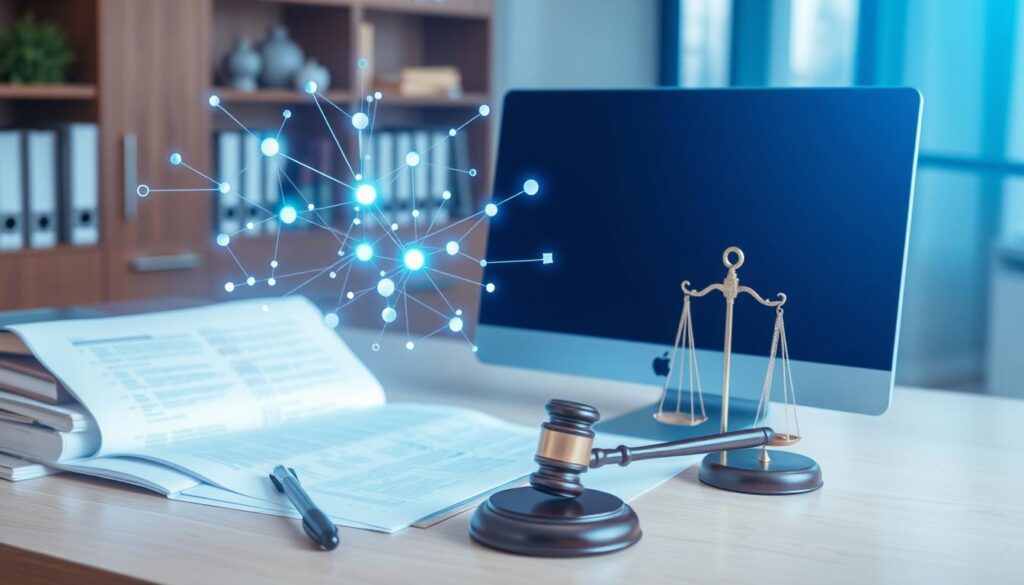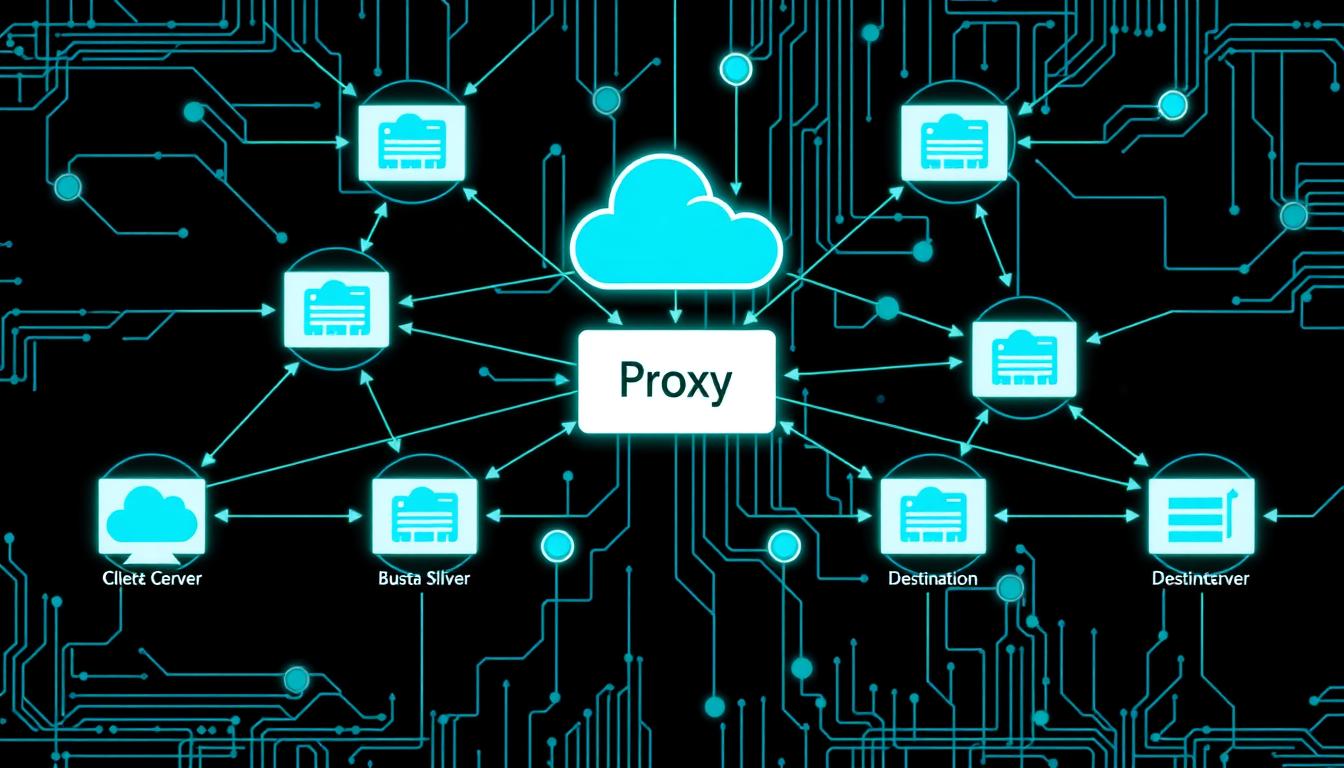Ever thought using proxy servers could get you into trouble? The online privacy world is complex. The legality of proxies is not simple. Proxies act as middlemen, hiding users’ IP addresses.
This raises big questions about their legality. They can protect your privacy or help with illegal acts.
Understanding proxy laws is key, with cybercrime on the rise. I’ll explore proxy usage and its legal side. This includes following laws and ethical use. If you want to know if are proxies illegal, you’re in the right spot.
Key Takeaways
- The legality of proxies varies greatly based on usage context, with legitimate uses typically being legal.
- Proxy servers are essential for protecting online privacy, but their misuse can lead to illegal activities.
- Awareness of different proxy regulations worldwide is crucial for users to avoid legal issues.
- Understanding ethical proxy usage is important to ensure compliance with applicable laws.
- Proxies and VPNs differ significantly in terms of privacy protection and legal implications.
Understanding Proxies and Their Functionality
Proxy servers are key in today’s internet world. They act as middlemen between users and the web. They offer security and anonymity benefits. Knowing how proxies work helps users in many ways, like accessing blocked content or web scraping.
Definition of Proxy Servers
A proxy server is a link between a user and the internet. It hides the user’s IP address by forwarding requests to websites. This keeps privacy safe and lets users access restricted content.
How Proxies Work
Proxies catch user requests and send them to websites. Then, they bring the website’s response back to the user. This way, websites see the proxy’s IP, not the user’s. There are many types of proxies, each handling requests differently. Some, like SSL proxies, encrypt data for better security.
Types of Proxy Servers
- HTTP Proxies: Basic proxies for web traffic.
- HTTPS Proxies: Secure proxies that encrypt data.
- SOCKS Proxies: Versatile proxies for all kinds of traffic.
- Residential Proxies: Use real IP addresses for large-scale web scraping.
- Datacenter Proxies: Fast but detectable as they don’t use real user IP addresses.
- Public Proxies: Free but may slow down and compromise security.
- Rotating Proxies: Change IP addresses often to avoid detection, great for scraping.
Choosing the right proxy type can greatly improve your online experience. It’s useful for things like competitive research, accessing blocked content, or boosting privacy and security.
Legal Use Cases for Proxies

Proxies have many legal uses that help both individuals and businesses. They are key in keeping information safe and improving how things work online. People and companies use them to keep their online activities private and to run their businesses smoothly.
Protecting Online Privacy
Keeping your online activities private is a big deal for many. Proxies help by hiding your IP address from trackers and dangers. About 55% of people using proxies do so to protect their privacy and stay anonymous online.
Many believe proxies make them safer online. This shows how important using proxies legally for privacy is in today’s world of constant data collection.
Remote Access and Business Operations
Proxies are crucial for companies that let employees work from anywhere. They help make sure employees can safely connect to the company’s network. This is key for keeping important information safe.
Almost 60% of businesses use proxies to control who can see certain web content. This helps keep things secure and makes it easier to connect. Plus, using proxies can cut down on bandwidth costs by up to 20%.
Web Scraping and Data Collection
When it comes to web scraping, following the rules is important. Proxies help by making it easier to collect data without getting caught. They spread out requests across different IP addresses to avoid getting blocked.
This is vital for companies that need to follow website rules. With access to over 700,000 datacenter IPs, proxies make collecting data much easier.
| Use Case | Benefits | Statistics |
|---|---|---|
| Protecting Online Privacy | Anonymity from trackers, enhanced security | 55% of users concerned about privacy |
| Remote Access | Secure connections, efficient operations | 60% of businesses use proxies for access control |
| Web Scraping | Avoiding IP bans, collecting diverse data | Access to 700,000 datacenter IPs |
Illegal Use Cases of Proxies

Proxies have many legal uses, but they can also be misused. It’s important to know about these illegal uses to understand the risks.
Cybercrime and Anonymity
Cybercriminals use proxies to hide their identities. They use them for hacking, phishing, and fraud. This makes it hard for law enforcement to catch them.
Proxies help these criminals stay hidden. This leads to more cybercrime happening.
Content Piracy and Copyright Infringement
Proxies help people access copyrighted content without permission. This is a big problem for companies that lose money because of it. Those who pirate content face serious legal trouble.
Online Harassment and Cyberbullying
Proxies can also be used for online bullying. Bullies hide their identities, making it hard for victims to fight back. It’s important to know how to protect yourself online.
It’s key to understand the dangers of proxies. To stay safe online, learn about best practices and follow the law. Check out this article for more information.
Are Proxies Illegal? Examining Proxy Legality Worldwide
Proxy laws vary worldwide, affecting users in different ways. By looking at proxy laws globally, we see that each country has its own rules. It’s key for users to know these laws, as they impact how we use proxies.
Proxy Legality in the US
In the US, proxies are mostly legal. People use them for privacy and to access content from other countries. But, using proxies for illegal activities can lead to big problems. Laws like the CFAA and DMCA help keep things in check.
Countries Where Proxies are Banned
Some countries have strict laws against proxies. For example, China blocks proxies and can punish violators harshly. North Korea is even stricter, banning proxies completely. Other countries with proxy bans include:
- Russia
- Iran
- United Arab Emirates
- Saudi Arabia
- Turkmenistan
Variations in Proxy Regulations by Region
Proxy laws vary by region, affecting their use. In Russia, non-compliant proxies can be blocked. Iran is even stricter, with severe penalties for proxy use.
Knowing these laws is crucial. It helps us avoid legal issues and stay compliant online.
| Country | Proxy Legality | Consequences for Violation |
|---|---|---|
| China | Banned | Fines, imprisonment |
| North Korea | Banned | Severe penalties |
| Russia | Restricted | Fines for unauthorized use |
| Iran | Restricted | Imprisonment |
| UAE | Restricted | Fines |
| Saudi Arabia | Restricted | Heavy penalties |
| Turkmenistan | Very restricted | Severe penalties |
Ethical vs. Unethical Proxy Usage

Knowing the difference between ethical and unethical proxy use is key for safe internet use. I want to talk about why it’s important to understand ethical proxies. I also want to explain the risks of getting them the wrong way. This way, users can make better choices online.
Understanding Ethical Proxy Acquisition
Ethical proxies are gotten with the right permissions and often come with payment to the IP owner. This way, the original user’s rights are kept safe. Companies like Proxy Cheap focus on getting proxies ethically. They sort proxies into standard and premium types, showing they care about how they get them.
Consequences of Unethical Proxy Use
Using proxies unethically can cause big problems, legally and for your reputation. Actions like hacking, phishing, and identity theft are made easier with such proxies. They can lead to serious legal issues. Countries like China, Iran, and Russia have strict laws against proxy misuse, stressing the need for accountability.
Being seen as involved in unethical activities can damage your reputation forever. So, it’s crucial to understand ethical proxies to avoid these issues and use proxies wisely.
Proxy Servers vs. VPNs: Legal Implications

When it comes to online privacy, knowing the difference between proxy servers and VPNs is key. This is true, mainly because of their legal standing. Both tools aim to protect your privacy, but their security and legality can vary a lot.
Key Differences Between Proxies and VPNs
Proxies mainly hide your IP address, offering some privacy. But, they don’t encrypt your data, making it easy to intercept. On the other hand, VPNs encrypt all your internet traffic. This protects sensitive info like passwords and financial details from hackers.
Here’s a quick comparison:
| Feature | Proxy Servers | VPNs |
|---|---|---|
| Encryption | No encryption | Full encryption |
| Coverage | Individual applications | System-wide protection |
| Speed | May be faster for single-site browsing | Can slow down due to encryption |
| Cost | Often free | Typically paid |
| Privacy | Limited privacy | Stronger privacy protections |
Legal Status of VPN Services
The laws about VPNs differ around the world. In many places, using VPNs is legal and safe. But, some countries have rules that could harm these services. It’s important to know the laws in your area if you use VPNs for online safety.
Legal Implications and Concerns Surrounding Proxies
It’s important to know the legal side of proxies. They can help keep your online activities private. But, using them the wrong way can get you into trouble. Laws about proxies vary by place, and breaking them can lead to fines or even jail time.
Potential Legal Issues Associated with Proxy Use
Some places block certain websites. Using proxies to get around these blocks without permission is illegal. Free proxies are more popular, which means more chance of your data being tracked or attacked.
Using a paid proxy service can be safer than free ones. But, it’s best to avoid using proxies for things like online banking. This is because you can’t be 100% sure your information is safe.
Best Practices for Legal Proxy Usage
To use proxies legally, follow some key steps. First, pick a proxy provider that follows the law. Look at their client list and read user reviews to find a reliable one.
Also, always get permission before visiting websites that don’t allow proxy use. In Canada and the U.S., knowing the local proxy laws is crucial to avoid fines.
Keeping up with proxy laws is essential. Stay updated on these rules to protect your online activities. For more details, check out key facts about proxy legality and how to get help if you need it.
Proxy Server Regulations and Compliance
It’s important to know about proxy regulations if you use proxy services. Laws about proxies vary by place, and understanding these rules helps pick the best services. It’s key to choose providers that follow the law.
Understanding Compliance with Proxy Laws
Compliant proxy providers follow laws from places like the European Union and the United States. These laws protect your data and privacy. For example, most companies use proxies to watch what employees do online and follow the law.
If you don’t follow proxy laws, you could face big fines. In some places, fines can be from $200 to $5,000.
How to Choose a Legally Compliant Proxy Provider
When picking a proxy provider, look for these things to make sure they’re legal:
- Transparency: Choose providers that clearly say how they handle your data, like logging it.
- Privacy Policies: Make sure they have strong privacy rules to keep your data safe.
- Security Measures: Pick services that use encryption and secure ways to access data. About 30% of users don’t use HTTPS, which is risky.
- Performance Reliability: Since 55% of users on free proxies often lose connection, a reliable provider is better.
Using compliant proxy providers is not just about following the law. It also keeps your data safe from legal trouble. With worries about data logging and security, picking trusted providers is more important than ever.
Conclusion
Proxy legality depends on how they are used. I’ve looked into legal and illegal uses, and the rules in different places. This helps me make smart choices when using proxies.
Using proxies responsibly is not only doable but also good. It’s important to follow the law and think about the right thing to do.
The internet and how we use it are always changing. It’s key to know about our options. Free proxies are cheap but slow and not very secure. Paid proxies are more expensive but faster and safer, great for tasks like web scraping.
Knowing about proxies and the law can make a big difference. It can help you have a good online experience without legal trouble. If you need more help, check out this proxy legality summary. Being informed helps you use proxies wisely and safely.
FAQ
Are proxies illegal?
What are the legal use cases for proxies?
Can proxies be misused for illegal activities?
What is the proxy legality in the US?
Are there countries that ban proxies?
What differentiates ethical proxy usage from unethical usage?
How do proxies differ from VPNs?
What potential legal implications are associated with proxy use?
How can I choose a legally compliant proxy provider?
Source Links
- https://draftsim.com/are-proxies-legal-mtg/
- https://chargebacks911.com/proxy-piercing/
- https://drinkproxies.com/pages/terms-of-service-1?srsltid=AfmBOor47NwCJiBpCI2XjAjKzZgM2k0OMjupgsqnGcx3uBNuN4RUPdns
- https://medium.com/@datajournal/what-are-residential-proxies-67023101f356
- https://www.joinmassive.com/blog/proxy-most-common-questions
- https://www.lambdatest.com/blog/proxy-server/
- https://www.drivelock.com/en/blog/facts-and-myths-proxy-serversproxy-servers
- https://www.abcproxy.com/blog/is-it-legal-to-use-proxies.html
- https://www.datahen.com/blog/is-it-legal-to-use-a-web-proxy-server-in-canada-and-the-united-states/
- https://multilogin.com/blog/how-to-use-proxy/
- https://www.rapidseedbox.com/blog/proxies-illegal
- https://www.goproxies.com/resources/blog/are-proxies-illegal
- https://www.proxy-cheap.com/blog/are-proxies-legal
- https://www.joinmassive.com/blog/what-are-proxy-pools-a-beginners-guide
- https://proxidize.com/proxy-server/residential-proxies/
- https://us.norton.com/blog/privacy/proxy-vs-vpn
- https://cyberinsider.com/vpn/proxy-vs-vpn/
- https://www.iplocation.net/how-are-proxy-products-legal-and-safe-to-use
- https://www.rapidseedbox.com/blog/proxy-sites-safe
- https://www.joinmassive.com/blog/residential-proxies-for-seo
- https://brandergroup.net/2023/01/what-is-a-proxy-ip-address/
- https://opportunitydesk.org/2024/07/02/the-pros-and-cons-of-free-vs-paid-proxies/
- https://scrapingant.com/blog/residential-proxies-high-cost



